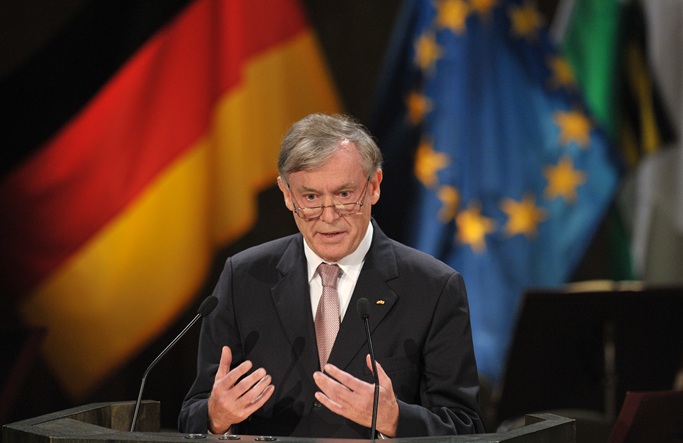Ex German President Köhler dies
Published : 01 Feb 2025, 21:12
Former German president Horst Köhler died on Saturday at the age of 81 following a brief illness, the presidential office in Berlin has announced.
Elected on May 23, 2004 and confirmed in office for a second term five years later, he resigned unexpectedly on May 31, 2010.
President Frank-Walter Steinmeier paid tribute to his predecessor in a message to Köhler's widow, Eva Luise Köhler, describing him as a "stroke of luck for our country."
"We can only be deeply grateful that we were able to experience Horst Köhler as the German Federal Republic's ninth president. He gave this country a lot," Steinmeier wrote.
Chancellor Olaf Scholz posted on X that Germany had lost "an engaged politician who worked throughout his life for a more just world."
Opposition leader Friedrich Merz said Köhler had "served the country with decency, clarity and great passion." Germany had lost a true democrat and a statesman, he said.
Köhler was the first president to take office without political affiliation. He began a career as civil servant in the Economy Ministry in 1976 after studying economics, rising to secretary of state in the Finance Ministry in 1990.
Köhler served as Germany's chief negotiator in the runup to the 1992 Maastricht Treaty that led to the creation of the euro.
In 1993, he moved to the private sector, serving as president of the association of Germany's powerful savings and high street banks, before being appointed president of the European Bank for Reconstruction and Development in London. In 2000, he became managing director of the International Monetary Fund.
Elected to succeed Johannes Rau as president, a largely ceremonial role in Germany, he was re-elected in 2009. His resignation a year later came as a shock and is unique in Germany's recent history.
It came after an unfortunate remark in a radio interview regarding Germany's participation in the conflict in Afghanistan, in which he linked the German military's deployment to the country's economic interests.
He was criticized for justifying the Afghan deployment on economic grounds – a charge he denied. He nevertheless saw his position as irreparably harmed and drew the consequences.
In office, Köhler took contentious decisions, on occasion refusing to sign legislation as required under the constitution. His role in the manoeuvring to dissolve parliament at the behest of then-chancellor Gerhard Schröder in 2005 was controversial at the time.
Köhler was a keen advocate for Africa during his career and was UN special envoy for Western Sahara between 2017 and 2019. Following his resignation, Köhler kept out of domestic politics, but did serve at the head of a council on climate change.


